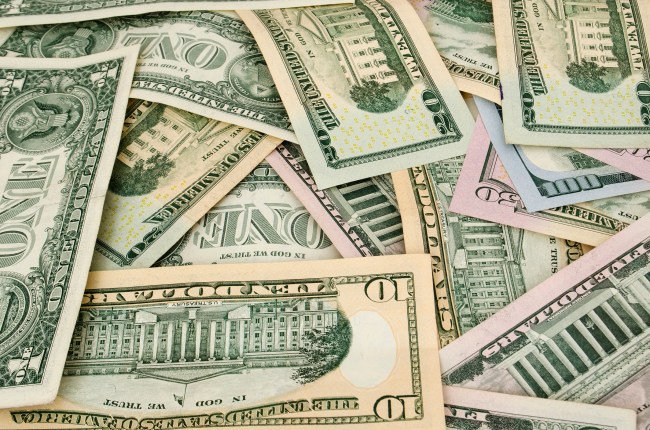
iStockphoto
What you are about to learn will make you feel one of two ways: irrationally angry or reasonably angry. If you find yourself feeling happy for these people, you haven’t shit away enough money playing the lottery. Congrat-u-fuckin-lations.
Jerry and Marge Selbee, a retired couple from Michigan, made $26 million winning various state lottery games dozens of times by using minimal brain power to game the system.
Jerry Selbee, who ran a local convenience store in a small Michigan town before retiring, didn’t need to use much of mathematics degree from Western Michigan University to make a fortune. It took the 80-year-old three minutes to find a loophole in the state lottery. Not some Good Will Hunting math proof or the employment of a math robot capable of generating a favorable algorithm. Three minutes of what Jerry calls “basic arithmetic.”
How?
That feature was called a “Rolldown”, and the lottery announced when it was coming. Unlike the Mega Millions games you’ve probably heard of where the jackpot keeps building until someone hits all six numbers and wins the big prize, in Winfall, if the jackpot reached $5 million, and no one matched all six numbers, all the money ‘rolled down’ to the lower-tier prize winners, dramatically boosting the payouts of those who matched five, four or three numbers. [via]
Jerry explained his logic to CBS News:
Here’s what I said. I said if I played $1,100 mathematically I’d have one 4-number winner, that’s 1,000 bucks. I divided 1,100 by six instead of 57 because I did a mental quick dirty and I come up with 18. So I knew I’d have either 18 or 19 3-number winners and that’s 50 bucks each. At 18 I got $1,000 for a 4-number winner, and I got 18 3-number winners worth $50 each, so that’s 900 bucks. So I got $1,100 invested and I’ve got a $1,900 return.
This loophole led Jerry to set up a corporation, G.S. Investment Strategies, where he sold shares in the corporation to family and friends for $500 a piece. By the spring of 2005, G.S. Investment Strategies had 25 investors–including three state troopers, a factory plant manager, and a bank vice president.
Two retirees crack the code to state lotteries to the tune of millions? And they somehow do it legally? Jerry and Marge Selbee's remarkable story didn't just land them on 60 Minutes; they could be headed to Hollywood. https://t.co/ecHj4GafXt pic.twitter.com/6D5IKvaAOV
— 60 Minutes (@60Minutes) January 28, 2019
They had played Winfall 12 times, winning millions, until the game suddenly shut down in Michigan thanks to, you guessed it, lack of sales.
Soon after, the Selbees learned of a similar game in Massachusetts called “Cash WinFall.” For the next six years, the couple would drive 14 hours to Massachusetts each time a roll down was happening, buying hundreds of thousands of tickets at two convenience stores.
Eventually, the Boston Globe received a tip that two groups were buying outrageous numbers of tickets. Jerry would later learn that a group of MIT students figured out exactly what he did, betting between $17 and $18 million on Cash Winfall over a seven-year period, earning at least $3.5 million in profits.
When it was all said and done, the Selbees said their group won a total of $26 million over a nine year period, making about $8 million in profit before taxes. The used the cash to renovate their house and help pay for the schooling of their six children, 14 grandchildren, and 10 great-grandchildren.
They also optioned the rights for their life story to be turned into a movie.
Do you feel angry? If I wasn’t so impressed I’d be punching a wall right now.
[h/t CBS News]